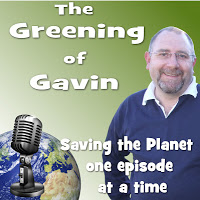Energy descent is not a topic that everyone is talking about in the streets or coffee shops. But I think it should be on the tips of everyone’s tongues.
As it would happen, my guest this week is Michael O’Connell and we talk about what we think may happen when the finite energy resources that we depend upon today to fuel our civilisation start to become a little more scarcer. Mick has had first hand experience in East Timor and has a good idea about what makes life worthwhile when you have little in the way of resources and the absence of a consumer culture.
We also talk about food security and touch on sustainable living back here in Australia. It seems that I owe him a few iced cold home brews!
This is a really interesting conversation about how far western society has to fall compared to other nations, and what basic things could make our lives much more fulfilling.
If you enjoyed the podcast, please pop over to iTunes and rate it and leave a review. You can also do the same within Stitcher Radio if you use that service. It would help me out so much, and elevate the ratings so that others can find out about the podcast and learn about sustainable living in the ‘burbs.
You can subscribe to the show via RSS or iTunes or Stitcher for your portable device. Just use the subscription buttons below.



Hi Gavin,
loved that, and very fascinated to learn that rice wasn’t always a part of the Indonesian diet. I’ve been thinking a lot about the introduction of so-called ‘super foods’ into the Australian diet lately. Some would try to convince us that we can no longer be adequately nourished without quinoa, chia seeds, goji berries, acai etc…Really? I worry about the carbon miles required to get these foods to us, and that we are taking away the traditional foods of poorer communities.
I think the 15 kilos of peaches I harvested from my own organic peach tree yesterday is a much better example of a super food! Fresh, bursting with flavour and nutrition, and NO carbon miles 🙂 I’ve made jam for the first time, done some baking, and of course will offer some to friends too. It’s easy to think there is no community anymore, or that most people have their heads in the sand. I’m finding that people you wouldn’t expect to be interested are starting to buy organic, and attend food production workshops. I work with a lovely family who sometimes bring me fresh eggs because they have an excess.
As you both acknowledged in the podcast, we should all just start where we can and DO something! I’m certainly guilty of lying awake in the night worrying about how the firewood will be trucked to my house when the oil is too expensive for truckies to afford!
When I pull myself together I realise that we can all create a community around us by joining in and by sharing – ideas, produce,time, a meal. And it’s this sense of community that makes the prospect of energy descent less daunting because you realise we can all support one another, and that you’re not the only person who knows we need to change our habits of consumption pronto. One of my resolutions for 2014 is to be more active in my community and to look for positive changes rather than focusing on the crazy,wasteful lives people are leading.
Madeleine.